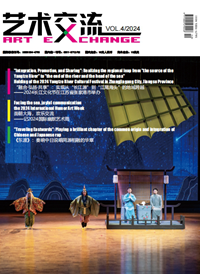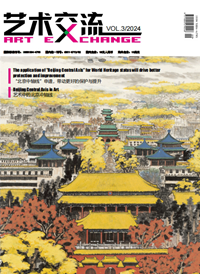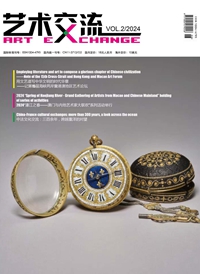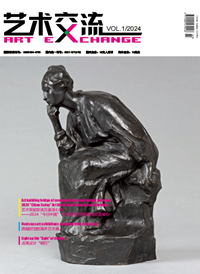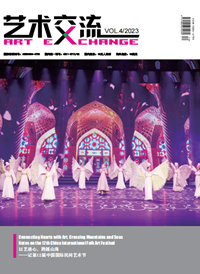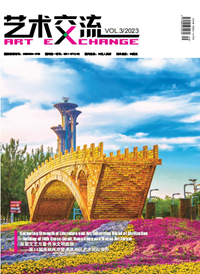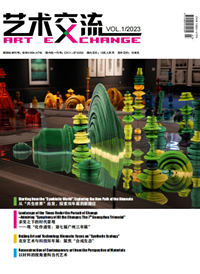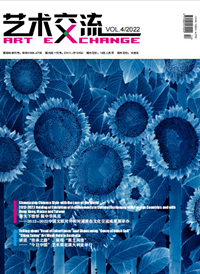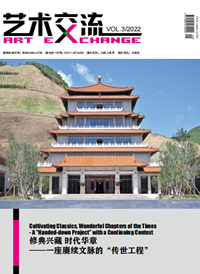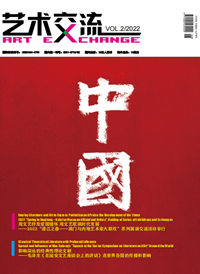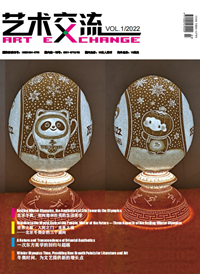
Stage Photo of Three Drops of Water

Stage Photo of Face Mold of a Girl by Seine River

Stage Photo of the Drama Affection in Love—Chekhov Taken by Wang Yuchen

Stage Photo of the Drama Affection in Love—Chekhov Taken by Wang Yuchen
When talking about Tong Daoming, many people will mention his first impression as a well-known theatre critic and researcher of Russian literature. However, in the 7th Beijing Nanluoguxiang Performing Arts Festival lately, a drama titled Three Drops of Water with a moderate plot, simple stage and ordinary cast was well-received by many audiences who surprisingly found that its author was just
Tong Daoming, a senior citizen at the age of 79.
In 1956, Tong, at the age of 19, was admitted into Moscow University where he encountered theatre and Anton Chekhov, both of which have determined his lifelong research and creation. Today, after 60 years have passed by and a decade since his virgin script, he has never ceased his writing. “My plays are not necessarily perfect, but I would like to remind people that drama can be realized in my way.” Tong said when talking about his own works in a simple room of Experts’ Dorm at Chinese Academy of Social Sciences (CASS).
The play Three Drops of Water consists of three comedies namely Humor is Boiled, Am I Late? and Wind Dismisses Fog. Its title is obviously a tribute to the play Four Drops of Water by Russian playwright Viktor Rozov. “Rozov just gathered four irrelevant stories, but every story, like a drop of water, did reflect a significant truth. Likewise, I wrote some tiny stories and piece them together.” Tong frankly uttered, “Though currently most comedies are just for laughs, I prefer to present humor that enables audiences to give a thought after laughing.”
In Tong’s play, we can find neither popular web-jokes nor mean satire. Instead, a series of daily interesting things and subtle feelings in his play will make audiences feel cozy in deep appreciation. The story of Wind Dismisses Fog is set in an editorial office of a literary magazine, and in the communications with poetry authors, the female editor recited some lines of the poem Good by Mayakovsky on live. At that moment, we can easily find that some elderly audiences couldn’t help reciting this familiar poem as well. “I still remember that when I asked one of my Russian fellow students how he was during my overseas study, he would invariably answer with a line of this poem—‘life is good, and I live a good life.’” The frequent occurrence of poetry is a significant characteristic of Tong’s plays. His explanation is as follows: “During my writing, I’ve come to realize that theatre is quite similar to poetry. In my fourth play Where Comes the Singing, the hero was a fan of poetry while in my sixth play A Pair of Eyes and Two Rivers the hero was a poet whose poetry was actually mine. I share this feeling about Anton Chekhov whose play, in contrast with his fiction, was much closer to poetry. In his play, the roles’ lines are of poetic sense and therefore keep a distance from our reality. That’s also why I enjoy composing plays—I can jump out of real life for a poetic expression”.
Upon Anton Chekhov, Tong mentioned his semester thesis titled On the Symbol of Realism in Chekhov’s Theatre when he was a junior student at Literature Department of Moscow University in 1959. Lakshin, his tutor, told him to collect all the references about Checkhov in Lenin Library and write down their names on a card. “When I completed that card, he looked through it very carefully and marked which book to read intensively, which to ignore and which to read a certain chapter only. Though he was merely four years older, his sophisticated knowledge about Chekhov indeed surprised me and aroused my admiration. The year 1959 was still within the honeymoon between China and Soviet Union. After I completed my thesis, Lakshin said to me, ‘Tong, I decide to give A to your thesis, but not because you come from China.’ As his comment said, ‘it is an essay with independent thinking and full of interesting ideas’. Before I set off back home, he said in all sincerity, ‘Tong, I hope that you will never give up interest in theatre or Chekhov’, which has influenced my entire life.” Tong recalled.
“During my study in Russia, a student’s admission was quite cheap, only at the mere price of a lunch at the canteen. At that time, I watched many plays, not only of Chekhov, but also other dramatists’ such as Shakespeare.” Tong said, “Once when I watched the play Hamlet, I found that an academician of the highest seniority was sitting in the front row of mine. From his facial expression, I could tell that he must have watched this play for several times. In order to appreciate his favorite play once and again, he never minded taking such a back seat with a group of poor students like me, which has impressed on my mind for good.” As far as Tong is concerned, as a great power of theatre, Russia is always blessed with many such extraordinary audiences as that figure.
In 1990, at the invitation of Chinese well-known performing artist Yu Shizhi, Oleg Efremov, the chief director of Moscow Art Theatre came to rehearse the Chekhov’s masterpiece The Seagull for Beijing People’s Art Theatre, and thus had quite a few contacts with Tong. "He was a queer guy, and upon his arrival in Beijing, he asked me if there was any theatre museum in China. I told him that there was one in Tianjin and in Beijing, the former residence of Master Mei Lanfang could be regarded as one. Then he paid a special visit to the theatre museum in Tianjian and Mei’s residence rather than any other places of tourist interest" .
The Moscow Art Theatre was established by Konstantin Stanislavski and Vladimir Nemirovich-Danchenko in 1898. However, the Efremov’s version of The Seagull had nothing at all to do with the Stanislavski’s director outline and showed bold innovation by presenting a moving pavilion as presumptive stage. “I still remember his following words, ‘if I totally copy Stanislavski’s version, that is nothing but betrayal of this theatre master.’” Tong recalled. What impressed him most was Efremov’s conclusion about the theme of the play—aspiration for a different kind of life. “My first play I’m a Seagull shared the same theme, and the hero and the heroine have their respective aspirations for a different kind of life, though the contents of their aspirations vary. The year 1996 was the 100th anniversary of the publication of Chekhov’s The Seagull and I completed my script in the same year, but there is no more follow-up.”
“My motivation for theatre creation comes from a meaningful word from Yu Shizhi who returned from a visit to Ying Ruocheng in severe illness—the biggest regret on China’s stage is lack of plays that speak for the intellectual. At this word, I was determined to choose Chinese intellectual as the hero of my following plays. My second play Face Mold of a Girl by Seine River is about Feng Zhi, a poet and elder head of Foreign Language Institute of CASS who I always respect. I just left it alone after completion.” Tong said. It was on September 17, 2009, the 100th anniversary of Master Feng Zhi’s birth that this play was presented on the stage of Penghao Theatre for the very first time.
From I’m Seagull to Face Mold of a Girl by Seine River, then to Autumn’s Melancholy, Where Comes the Singing and Total Retrospect, at the age of 78, Tong completed his 10th play Holy War. The absence of antagonist is another characteristic of his works. For this point, Tong told us an interesting story. A student from Department of Dramatic Literature of Shanghai Theatre Academy once came to see him and said, “Mr. Tong, supposing your play is our assignment, our teacher will never give it a pass.” “Later I came to realize that his point was that there is no antagonist in my play and therefore the dramatic conflict is not sharp enough.” As far as Tong can see, this flaw is also the outcome of Chekhov’s influence. “There is no antagonist either in Chekhov’s scripts and it was not until I began to compose my own script that I came to realize the reason. As a kind-hearted writer with a strong compassion, Chekhov was unable to present a bad guy. He never intended for an interpersonal conflict and thus opened up a new category in drama.” Tong said, “Just like a married woman, theatre has her own mother—literature and her own mother-in-law—stage arts. Nevertheless, along with the fashion of director-core system, the literary feature of theatre is considerably reduced. Rather than a story with an intense dramatic conflict or florid rhetoric, the literary feature of a play ought to be a showcase of a person’s spiritual life and inner world.”
Such comments from his teacher Lakshin during his days in Russia as “independent thinking”, “full of interesting ideas” still linger in Tong’s mind as his direction for endeavor. When he composed the play Chekhov and Mizinova, he made a conclusion through the following line of the hero (Chekhov): “I’ve just completed a novel and I would like to quote a sentence from it as souvenir for you and your friends—‘by dedicating my entire life to a certain cause, I have turned myself into a person of good taste and a person favored by those of good taste’”.



